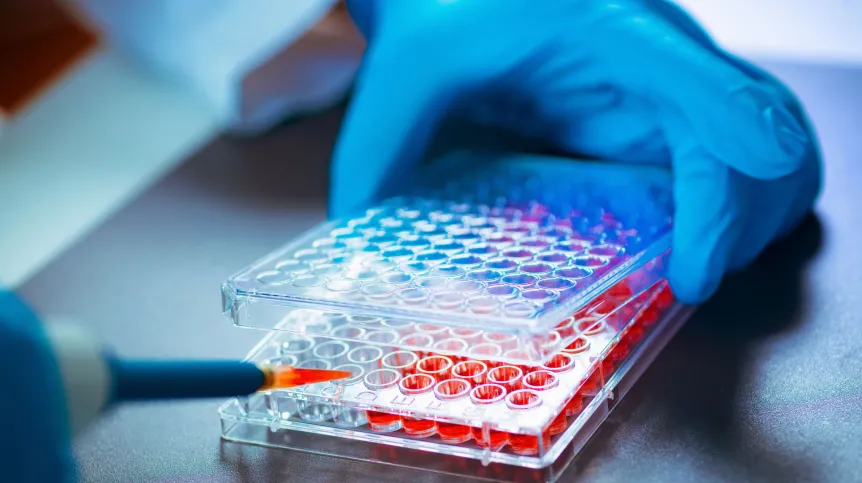
Researchers have shown that the higher the level of Prolactin-Induced Protein (PIP) in breast cancer cells, the better the effects of chemotherapy. The discovery may be of key importance in the choice of therapy for patients suffering from breast cancer.
The project 'Role of Prolactin-Induced Protein (PIP) in breast cancer progression using an adjuvant therapy' was funded by the Polish National Science Centre as part of the OPUS 12 competition. The host institution was the Medical University of Wrocław, with Professor Piotr Dzięgiel as the principal investigator.
The scientist emphasized in an interview with PAP that the research focused on the correlation of low PIP protein levels in breast cancer cells with resistance to cytostatics used in standard chemotherapy. This led to the conclusion that this protein increased the effectiveness of cytostatics, in a way 'helping' to kill cancer cells.
According to Professor Piotr Dzięgiel, one of the potential important applications of this discovery may be tests that allow scientists to personalize breast cancer therapy.
Professor Dzięgiel said: “Since we know that standard chemotherapy is not effective if there are no PIPs, a relatively simple test could be used to identify a group of patients, for whom other therapeutic solutions should be sought, a more personalized chemotherapy that will be effective, speed up treatment and reduce adverse effects.”
He added that the research was carried out on archival material collected earlier. These were not clinical trials, but the project fully confirmed the relationship between the level of PIP protein in breast cancer cells and the resistance to cytostatics used in standard chemotherapy.
The research results were published in the prestigious American Journal of Cancer Research and the latest results were sent to Scientific Reports.
Among the authors of the publication, the majority are employees of the Department of Histology and Embryology of the Medical University in Wrocław, headed by Professor Piotr Dzięgiel. (PAP)
PAP - Science in Poland, Roman Skiba
ros/ mhr/ kap/
tr. RL













